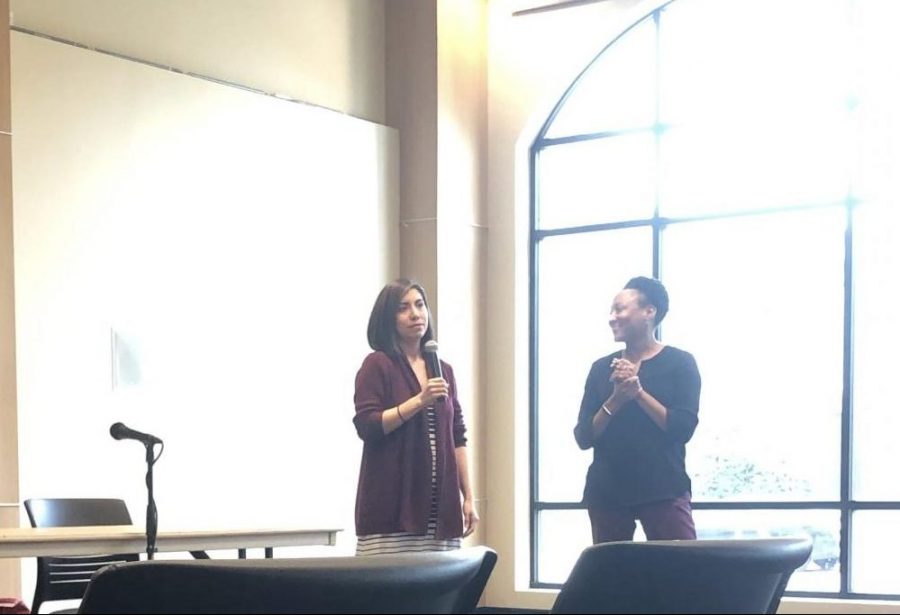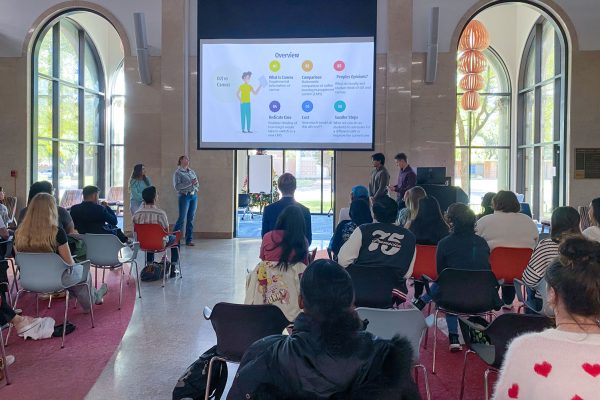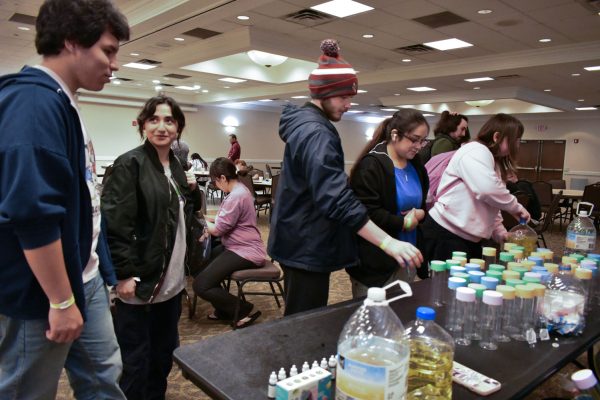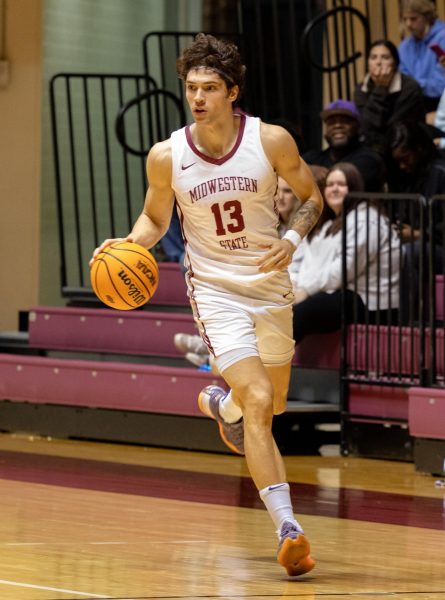Speakers discuss challenges of international students
Guest speaker Elizabeth Ysasi during her presentation on international student experiences.
20 students and faculty gathered in the Legacy Multipurpose Room to hear the last Critical Conversation series of the year about international student experiences March 29.
Elizabeth Ysasi, international services specialist, presented the Critical Conversation series hosted by the Office of Equity, Inclusion, & Multicultural Affairs,
“Critical Conversations is an effort through our office to engage the campus community around diversity issues, student populations and student success,” Ysasi said.
The presentation was over international student experiences and covered certain topics such as international student profile, harsh transition and resource needs for students.
“International students are individuals on student visas, whether F-1 or NATO, as well as the resignations for people who may not have a legal standing in the United States,” Ysasi said.
The presentation included a chart listing the international student population over the years, as well as a pie chart showing each countries representation for the current semester.
“While you may have heard about international students being about 10 percent of the student population, a visual perspective or informational knowledge about the countries represented in that are going to come predominantly from Dominica,” Ysasi said.
Ysasi also mentioned some factors of being an international student, including the natural stresses that come with being a student, cultural differences and immigration regulations and restrictions if on an F-1 visa.
“There are cultural differences that an international student would experience that a normal domestic student would not. That could be something as simple as a different language or dialect,” Ysasi said.
Ysasi ended her presentation by sharing the resources available to international students, such as the office of international services, academic departments and international student organizations.
“We are a very small office, and quite frankly, not equipped to deal with the population of students. I primarily see all of the students when it comes to immigration related matters, but there is only one of me,” Ysasi said.
The Critical Conversation also featured a panel of four international students who shared their experiences so far. The international student panel began by sharing some of their expectations going to school in the United States.
“For me, I think it was a little bit different because I also went to high school in Florida so I kind of had an idea of what it’s like going to the school in the U.S. but it was still a bit scary for me,” Darien Roach, exercise physiology graduate student, said.
They discussed how the international student services on campus could improve to better assist them.
“I honestly think the international student office does a good job of helping us transition and pointing us in the right direction… But at the same I think just being open minded and understanding of the issues we’re going through and the transition for us,” Roach said.
Vasudev Vijayaraman, computer science senior, thought changes to the international student organization would be a good improvement.
“Something like more funding or activities for international students, because I believe most internationals don’t know about them,” Vijayaraman said.
Lastly, they mentioned what the best thing about being an international student was for them.
“Just affording us the opportunity for higher education, because I know a lot of other universities you probably have to pay a lot more, so just being an affordable university where we can better our lives,” Roach said.









lance johnson • Apr 2, 2019 at 12:32 PM
It’s beneficial to discuss these matters because being an international student away from home IS difficult, compounded by our complex culture and language problems. Welcoming and assimilation assistance must come from numerous sources, including the White House, to aid these young people embarking on life’s journey.
Most struggle in their efforts and need guidance from schools’ international departments, immigration protection, host families, concerned neighbors and fellow students, and even informative books to extend a cultural helping hand.
Something that might help anyone coming to the US is the award-winning worldwide book/ebook “What Foreigners Need To Know About America From A To Z: How to Understand Crazy American Culture, People, Government, Business, Language and More.”
Used in foreign Fulbright student programs and endorsed worldwide by ambassadors, educators, and editors, it identifies how “foreigners” have become successful in the US, including students.
It explains how to cope with a confusing new culture and friendship process, and daunting classroom differences. It explains how US businesses operate and how to get a job (which differs from most countries), a must for those who want to work with/for an American firm here or overseas.
It also identifies the most common English grammar and speech problems foreigners have and tips for easily overcoming them, the number one stumbling block they say they have to succeeding here.
Good luck to all at MSU or wherever you study or wherever you come from, because that is the TRUE spirit of the American PEOPLE, not a few in government who shout the loudest! Supporters of int’l students must shout louder.